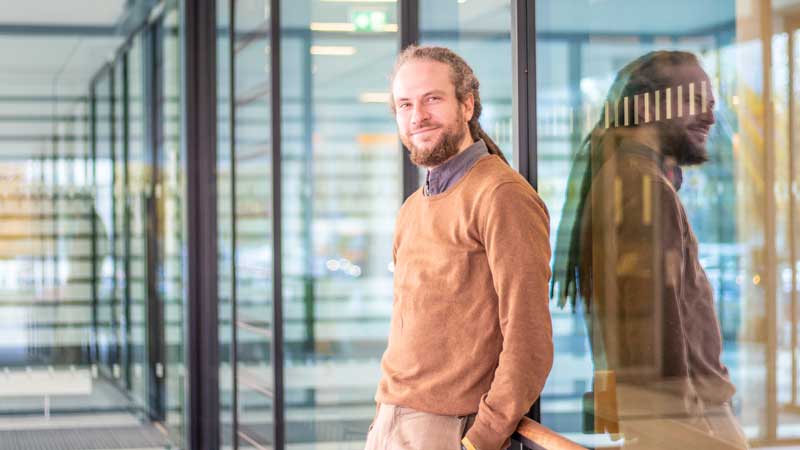The Royal Microscopy Society recognizes Dr. Robert Haase, group leader at the DFG Cluster of Excellence Physics of Life (PoL) at TU Dresden, for his efforts towards promoting advanced open source image analysis in microscopy and biology. The Data Analysis in Imaging and Microscopy (DAIM) Section chose Dr. Haase and his colleague Dr. Peter Bankhead from the University of Edinburgh as the first scientists to receive the newly established Royal Microscopical Society Award for Data Analysis in Imaging. The award is intended to promote independent early- and mid-career scientists for outstanding scientific achievements in the field of data analysis in imaging. It is expected to be presented at the Microscience Microscopy Congress 2023 (mmc2023) at Manchester in July 2023.
Dr. Robert Haase is a globally renowned expert in microscopy-related image data science and high-performance image computing. The DAIM committee explicitly acknowledges his work in accelerating image analysis on modern computing hardware such as graphics processing units and his enduring community work in spreading the word about how to use this technology openly via his YouTube channel and the Image-Science forum, a global community of image data science experts who voluntarily answer image analysis related questions for free online: “Robert has become a hugely well-known and respected figure within the image analysis community. Through his achievements as a software developer, and commitment to sharing his knowledge with others, he has made a unique impact.”
“Reproducible image data analysis makes a huge difference when transitioning from descriptive microscopy experiments to quantitative image data science. We interdisciplinary computer scientists have the responsibility to establish sustainable, state-of-the-art computing techniques for this purpose in biology. I’m extremely excited that the DAIM committee and Royal Microscopy Society acknowledge my work,” Dr. Robert Haase comments the announcement of the award and adds, “Computer scientists and biologists speak different technical languages and it is huge fun to cross the river between these communities regularly.”
Robert Haase studied Computer Science at the University of Applied Sciences in Dresden, and joined the Medical Faculty Carl Gustav Carus at TU Dresden for his doctoral studies on artificial swarm intelligence for image segmentation in cancer research. After post-doctoral work in the Scientific Computing Facility and in Gene Myers’ lab at the Max Planck Institute of Molecular Cell Biology and Genetics in Dresden, he established his group for Bio-image Analysis Technology Development at the DFG Cluster of Excellence Physics of Life (PoL) at TU Dresden. His group focuses on giving advanced computing and image data science methods into the hands of biologists and biophysicists to enable them to gain deeper insights into the Physics of Life.
